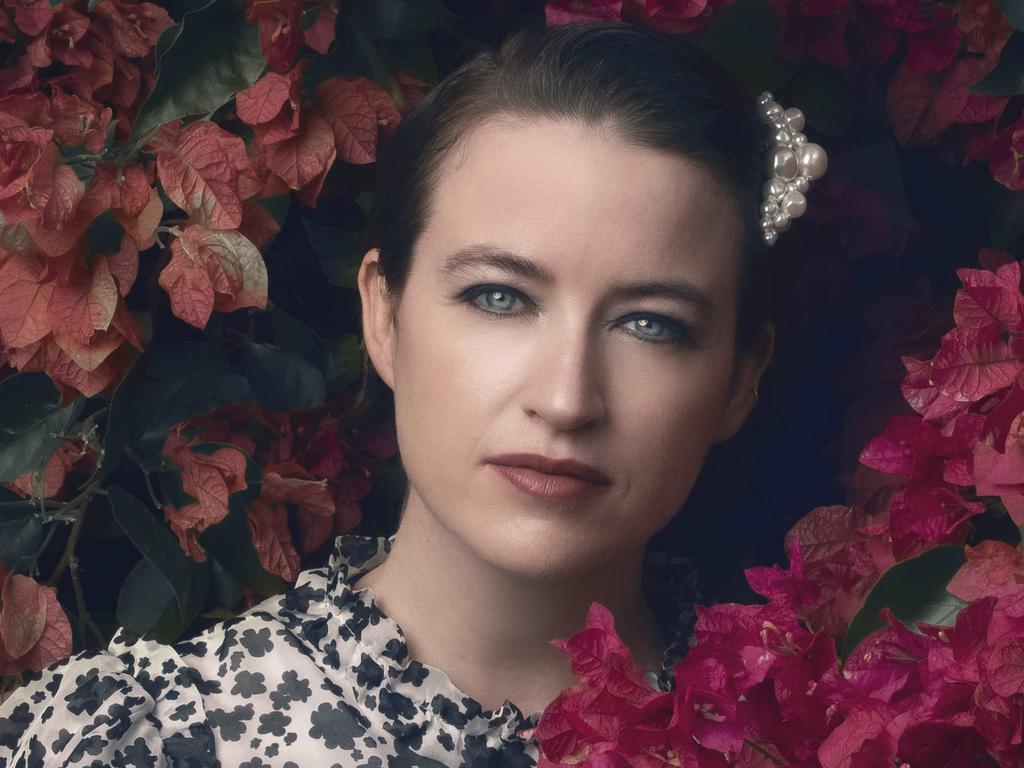Review, When She Was Good by Michael Robotham, Prey by LA Larkin and The Night Swim by Megan Goldin
A volatile teenage girl becomes the obsession of her 30-something forensic psychologist in Michael Robotham’s gripping new novel.

Novice authors are renowned for suffering what Australian writer Emma Viskic has called DSB: Difficult Second Book syndrome.
In the case of an experienced author settling into a series, however, book two may come together readily. The author now has the confidence derived from familiarity with returning characters and the types of activities, language and pacing suited to them. The published result is more assured and better crafted.
The title of Michael Robotham’s new novel, When She Was Good, invites the compliment “very, very good”. And, indeed, while the first book in Robotham’s Cyrus Haven psychological crime series, Good Girl, Bad Girl, was an engaging read, its successor is very, very good.

More obviously, both titles reference volatile teenager Evie Cormac, who preoccupies the thoughts of Cyrus, Robotham’s Nottingham-based forensic psychologist. For Cyrus, life could be said to be “all about Evie”.
As a survivor of harm and a girl with an acute sense of abandonment, Evie can be pitiful when she’s not abrasive and scary, while Cyrus, a 30-something with a sad childhood, is a high-functioning survivor also lacking close bonds.
While Evie’s recovery from trauma is Cyrus’s long-term goal, her every move is a source of fascination and exasperation. And for Evie, Cyrus is not merely another do-gooder or lying professional but someone she can turn to and trust insofar as she can trust anybody.
Robotham keeps Cyrus’s obsession with Evie this side of creepy, giving him a relationship with an age-appropriate woman in this instalment and making him seem a self-sacrificing saviour rather than a co-dependent.
Cyrus’s new police assignment is prompted by the death (murder disguised as suicide) of a retired detective who had been pursuing a paedophile case. Meanwhile, Evie is once again in trouble for violence and remains confined to a secure facility. She is still not disclosing details of her origins or the events that led to her being found at age 10 hiding close to the corpse of a criminal who had been tortured.
Conveniently for narrative integration, Cyrus’s case quickly proves to involve Evie. Cyrus notices the words Angel Face on an apparent hit list. This was the nickname given to Evie by hospital staff after she was found. He also learns a scar-faced man posing as an authority figure is circulating, looking for Evie. If she was a victim of paedophilia and can identify her abuser (or abusers), then Evie must be in grave danger.
Cyrus’s tattoo artist has a role this time, and toward the end of the book the crash of his stock-filled van supplies a spectacular moment ideal for a fresh Robotham TV series.
Like Robotham, British-Australian author LA Larkin is up to book two in a series that is strengthening as it progresses.

After publishing two stand-alone thrillers, Larkin created London-based investigative journalist Olivia Wolfe, and that rare thing, an international action series with a female protagonist, was born. Devour, book one, saw Wolfe rocketing between Antarctica, the UK and the US to avert a biological weapon catastrophe while also being stalked. In her new novel, Prey, the action is scaled back, more cohesive, and mostly confined to one region: southern Africa.
Initially the challenge for Wolfe looks like high-end tax fraud: Britain’s Chancellor of the Exchequer has a secret offshore account. Then Wolfe’s informant is killed and while senior police try to scare her off the case, she finds evidence of a cosignatory in Soweto. Reportedly a Russian billionaire close to Vladimir Putin is soon travelling to Johannesburg, as is the Chancellor.
Wolfe flies south. An abrasive British specialist operations policeman, Dan Casburn, arrives in Johannesburg simultaneously. Already in southern Africa, working perhaps as a bodyguard, enforcer or mercenary, is the Russian “ally or enemy?” with whom Wolfe shared a long sex scene in Devour. And what about the Southeast Asian businessman and philanthropist over the border in Zimbabwe, enjoying the protection of Mugabe Jr?
If there is a criminal public-private syndicate operating, its trading possibilities include state secrets, armaments, conflict diamonds, and drugs. Another possibility is trafficking in firearms, people or wildlife products such as ivory and rhino horn. For Wolfe, the hunt is on.
Unfortunately for her, she too is being hunted: by an assassin who has been instructed to maintain surveillance on her but is more enthusiastic about livestreaming mutilations.
Stubborn and ardently cause-driven, Wolfe must struggle through the alarming dilemmas she propels herself into.
As a short woman sporting a pixie haircut, she does not present as a threat to the men she investigates or confronts. Yet they learn to their pain that she is fast with unexpected MMA moves and skilful in using the small devices she carries concealed in her backpack.
There is a gratifying sense of Larkin settling in with this protagonist and refining appropriate craft skills. Short sentences and chapters, plenty of dialogue, and not too many points of view or side stories: these choices fit the bill. The presence of some wonky syntax is what politicians would call a distraction.
Megan Goldin’s background as an Asian and Middle Eastern correspondent for major news media could inform an espionage or action series. So far, however, the Melbourne-based author has published three psychological mystery-thrillers, each set in the US and each a distinctively different stand-alone.
Goldin has been outstanding from the outset in the areas of plotting, gradual release of information and maintenance of suspense. She is also adept at examining social issues as they play out in small-scale scenarios.
With Goldin’s prose straightforward, colloquial (and sometimes clichéd), hers are novels that give the initial impression of being midweight entertainments but turn out to be compelling narratives with substance.
In The Night Swim, her third book, Goldin takes us to a small city in coastal North Carolina where some families have known each other for generations. Here she combines a divisive courtroom drama with unofficial investigation of incidents separated by 25 years.
In each instance, a high school-age girl was with local young men near the water when she experienced trouble. The first girl died, her death attributed to drowning, investigations allegedly inadequate and compromised.

Now the girl’s sister wants help to achieve retrospective justice. In the contemporary matter, a girl is alleging rape. The accused, a swimming hero, has plenty of public sympathy and his attorneys insist the sex was consensual.
Podcaster Rachel Krall has committed to covering this rape trial and in episode one, which serves as an early chapter, she tells her listeners what motivated her, outlining a case that distressed her when she was a crime reporter. The case reminded me of the real-life 2018 death of Melbourne comedian Eurydice Dixon, assaulted and murdered when she walked home across parkland after a gig.
“I want to make you think about how rape and the threat of rape affect the lives of women in a hundred different ways,” Rachel says. Later, she expresses a broader understanding of sexual assault, in line with changing community attitudes.
In a meta-narrative move, Goldin also queries the appropriateness of “crowdsourcing justice” through podcasts and has Rachel assert she was not thinking of controversy and publicity for her broadcasts when she chose the topic of rape.
Robyn Walton is a writer and critic. When She Was Good by Michael Robotham (Hachette, 404pp, $32.99); Prey by LA Larkin (Clan Destine Press, 355pp, $29.95); The Night Swim by Megan Goldin (Michael Joseph, 341pp, $32.99).






To join the conversation, please log in. Don't have an account? Register
Join the conversation, you are commenting as Logout